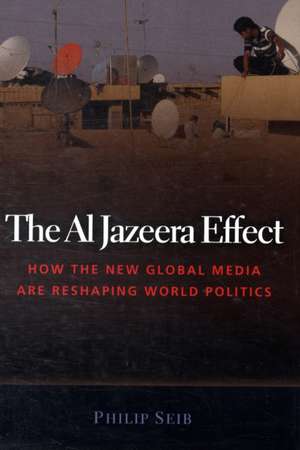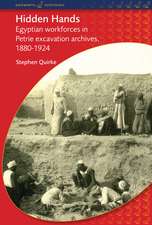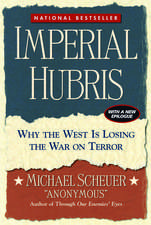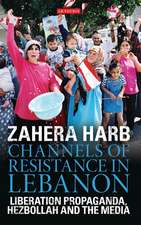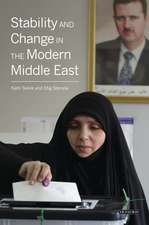The Al Jazeera Effect: How the New Global Media Are Reshaping World Politics
Autor Phillip Seiben Limba Engleză Hardback – 31 aug 2008
The battle for hearts and minds in the Middle East is being fought not on the streets of Baghdad, but on the newscasts and talk shows of Al Jazeera. The future of China is being shaped not by Communist Party bureaucrats, but by bloggers working quietly in cyber cafes. The next attacks by al Qaeda will emerge not from Osama bin Laden’s cave, but from cells around the world connected by the Internet.
In these and many other instances, traditional ways of reshaping global politics have been superseded by the influence of new media—satellite television, the Internet, and other high-tech tools. What is involved is more than a refinement of established practices. We are seeing a comprehensive reconnecting of the global village and a reshaping of how the world works.
Al Jazeera is a paradigm of new media’s influence. Ten years ago, there was much talk about “the CNN effect,” the theory that news coverage—especially gripping visual storytelling—was influencing foreign policy throughout the world. Today, “the Al Jazeera effect” takes that a significant step further. The concept encompasses the use of new media as tools in every aspect of global affairs, ranging from democratization to terrorism, and including the concept of “virtual states.”
“The media” are no longer just the media. They have a larger popular base than ever before and, as a result, have unprecedented impact on international politics. The media can be tools of conflict and instruments of peace; they can make traditional borders irrelevant and unify peoples scattered across the globe. This phenomenon, the Al Jazeera effect, is reshaping the world.
In these and many other instances, traditional ways of reshaping global politics have been superseded by the influence of new media—satellite television, the Internet, and other high-tech tools. What is involved is more than a refinement of established practices. We are seeing a comprehensive reconnecting of the global village and a reshaping of how the world works.
Al Jazeera is a paradigm of new media’s influence. Ten years ago, there was much talk about “the CNN effect,” the theory that news coverage—especially gripping visual storytelling—was influencing foreign policy throughout the world. Today, “the Al Jazeera effect” takes that a significant step further. The concept encompasses the use of new media as tools in every aspect of global affairs, ranging from democratization to terrorism, and including the concept of “virtual states.”
“The media” are no longer just the media. They have a larger popular base than ever before and, as a result, have unprecedented impact on international politics. The media can be tools of conflict and instruments of peace; they can make traditional borders irrelevant and unify peoples scattered across the globe. This phenomenon, the Al Jazeera effect, is reshaping the world.
Preț: 140.63 lei
Nou
Puncte Express: 211
Preț estimativ în valută:
26.91€ • 28.17$ • 22.27£
26.91€ • 28.17$ • 22.27£
Carte disponibilă
Livrare economică 17-31 martie
Preluare comenzi: 021 569.72.76
Specificații
ISBN-13: 9781597972000
ISBN-10: 1597972002
Pagini: 240
Dimensiuni: 152 x 229 x 25 mm
Greutate: 0.49 kg
Editura: Potomac Books Inc
Colecția Potomac Books
Locul publicării:United States
ISBN-10: 1597972002
Pagini: 240
Dimensiuni: 152 x 229 x 25 mm
Greutate: 0.49 kg
Editura: Potomac Books Inc
Colecția Potomac Books
Locul publicării:United States
Recenzii
“This very readable book is an ideal introduction for the non-specialist to the remarkable and complex world of new communication media, from satellite broadcasting to text messaging. Carefully researched, it provides up-to-date information on the various media instruments and interesting analyses of their roles. A valuable contribution to the field.”—William A. Rugh, author of Arab Mass Media: Newspapers, Radio, and Television in Arab Politics
“Seib’s book cuts right through the new media debate, dissecting the culture of fear in the West and the culture of humiliation in the Arab world. This is an important, even vital, book in understanding the cyber-Jihad since 9/11.”—Paul Moorcraft, director of the Centre for Foreign Policy Analysis, London, and visiting professor at Cardiff University’s School of Journalism, Media, and Cultural Studies
“The emergence of new media, concomitant with new democratic potentials and new forms of violence and terrorism worldwide, is not accidental. In The Al Jazeera Effect, Philip Seib provides a thoughtful and sophisticated account of these salient political and media trends and how they interconnect. This book contains a wealth of information about the Web, the blogosphere, and satellite TV, with particular focus on the Middle East; but its implications are complex, uncertain, and vast—extending beyond the Internet and other media in the Arab-Muslim world. ‘The Arab satellite channel itself,’ Seib writes, ‘is just the most visible player in a huge universe of new communications and information providers that are changing the relationships between those govern and those who are governed.’ The Al Jazeera Effect is an excellent primer for the brave new world of the 21st century and the rugged roads to democracy that lie ahead.”—Jeffrey Scheuer, author of The Big Picture: Why Democracies Need Journalistic Excellence
"Seib constructs an imaginative, thorough and balanced assessment of how news—ever more a dialogue and less an event—is redistributing political power."—Publishers Weekly
"Seib writes succinctly and clearly, devoid of the virus of US academic jargon. So this book is an ideal introduction for the non-specialist who wants to understand how the new communication media are influencing the Islamic world. Yet there is also much for the experienced security analyst to ponder. Seib’s work cuts right through the new media debate, dissecting the culture of fear in the West and the culture of humiliation in the Arab world. This is an important book if you want to understand the contemporary cyber-jihad."—RUSI Journal
"Clear, concise, and informed."—Scoop Review of Books
